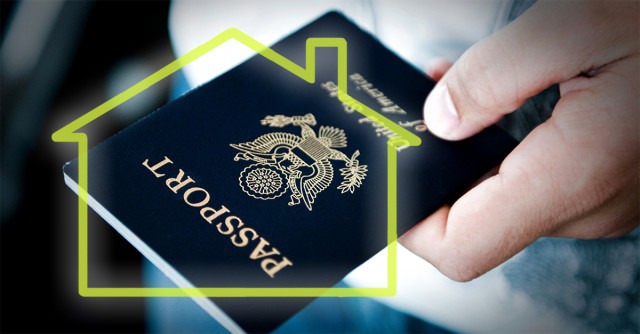
More and more non-Spaniards are buying houses in Spain. In the past year alone, more than 61,000 transactions involving ex-pats were closed according to data from the Spanish Registry, which means 13 out of every 100 operations was of this type, the highest figure in history.
The mortgage service idealista/hipotecas says that although most foreign buyers take out mortgages in their countries of origin, many find it interesting to know what loans are on offer for the purchase of homes in Spain.
But is the nationality of the client so important to a financial institution? The answer is a resounding yes. Generally speaking, banks apply more flexible or restrictive conditions to the mortgage based on the nationality of the potential client.
For example, Spaniards living abroad tend to have the same conditions as residents of that country, but in the case of people from other countries who come to Spain, whether they have family there and where in the world they come from have an influence: if they come from rich countries (Western Europe, the USA, Canada, etc.), banking entities are more receptive to granting loans for property purchases, while if they come from less developed countries or Eastern Europe, the financial sector tends to pose more problems.
"Among the reasons that lead the financial sector to make a distinction between nationalities are better knowledge of their legal system and their economic stability, as well as the requirements of regulatory compliance and money laundering, which mean banks have to filter customers and ensure that the savings they bring to the purchase come from legal activities like work, investments and inheritances," says Juan Villén, head of idealista/hipotecas.
In addition, as pointed out by Fernando Montenegro, Director General of Legal Lifeline, a legal consultancy specialising in the English-speaking community in Spain, "Not all banks grant mortgage loans to non-residents. The main reason is that it is often impossible to seize assets abroad, so the property itself is the only guarantee that the bank has when it comes to covering the money borrowed.”
According to the information provided by the consultancy firm, the British and German are the ones who are often offered this type of mortgage loan (which coincides with the nationalities who buy the most property in Spain), although buyers from other countries are also eligible for these loans.
In any case, the greatest obstacle that foreigners who want to obtain a mortgage in Spain must face when financing the purchase of a home is usually the amount that the banks are willing to lend.
Under normal loan conditions, people opt for 80% of the purchase price of the property (i.e. the customer must put up the remaining 20% plus the 10%-12% required for the costs and taxes associated with the transaction). In the case of mortgages for foreigners buying property in Spain, the limit is 70%, although depending on the operation and the bank, this percentage may be reduced to 60% or even 50%. This means that the customer must have the necessary savings to pay upfront for about half of the house, plus expenses.
However, there are Spanish banks that are seeing a profitable opportunity in the granting of mortgages to ex-pats and are creating teams specialised in this type of client, including consultancy so that foreign buyers have the guarantee of notaries and the Land Registry to help them navigate the buying process.
Once the bank has received the customer's request, the process is the same, regardless of nationality.
As idealista/hipotecas reminds us, the risk committee must review all the documentation and accept or reject the credit (which usually takes about a week). If the result is favourable, the institution will send the customer a binding offer containing all the financial conditions of the contract which must be accepted by the customer within a specified period of time (usually around 10 days). Once the customer accepts the offer, the bank sends all the documentation to the notary to prepare the deed, a document that the customer must review before signing it definitively. It is usual to sign the mortgage and the purchase of the property on the same day.
Among the most proactive institutions when granting mortgages to foreigners are Santander, Ibercaja, Bankinter, Hipotecas.com, Abanca and Bankia. Some of them already have specific services for operations with ex-pats, while others are betting on this new niche due to their strong presence abroad or on the Spanish coast, where most of the transactions are carried out. Santander, for example, has a strong presence in the United Kingdom, Poland, Portugal, Mexico, Brazil, Chile and Argentina, while Bankia, which has just completed the integration of BMN, has strengthened its presence in the Mediterranean area.
According to the Spanish Property Registry, the coast and the islands are the regions with the most sales, since the houses there are usually second properties used as holiday homes. The most common customers are usually the British, French, German, Belgian and Swedish, while the provinces most in demand in 2017 were Alicante, Tenerife, the Balearic Islands, Girona and Malaga. In all these areas, more than 30% of the transactions involved ex-pats.
At idealista/hipotecas we find you the best mortgage,
from Euribor + 0.75%. Free service with no commitment.